This roundup discusses the seemingly outlandish Ceph and a sausage factory, as well as comparability startup Liqid getting a brace of supercomputer contracts and Panasas giving Spectrum Scale the parallel file storage boot at the University of Buffalo.
Snowflake IPO
Snowflake Computing has filed for an IPO that could value the cloud data warehouse startup at $20bn. To date, Snowflake has received $.4bn in funding and the IPO would produce a lavish return for its founders and investors.
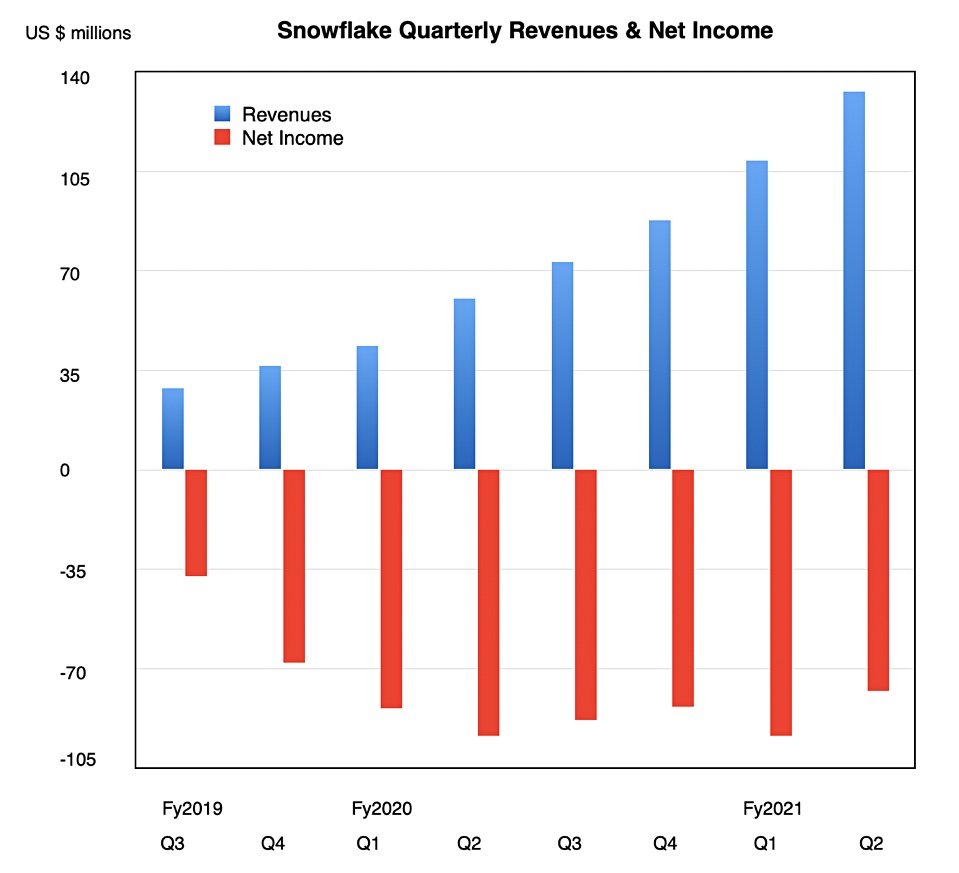
The company is growing rapidly – $264.8m revenues in FY2020 – but is also losing scads of cash – $264.8m for the year. Snowflake’s customer count has doubled from 1,547 a year ago to 3,117 at the end of July. The current annual revenue run rate is over $500m.
Liqid supercomputers
Liqid has won two DoD contracts, totalling nearly $32m for two composable systems, nicknamed Jean and Kay. that will run physics-based, AI, and ML applications.
Jean will have 1,202 Cascade Lake-AP CPUs, 280 A100 GPUs, 323 TBs of memory and 12.5 PB of usable NVMe-based storage. The slightly smaller Kay will feature 1,010 Cascade Lake-AP CPUs, 76 A100 GPUs, 240 TB of memory, and 10 PB of usable NVMe storage.
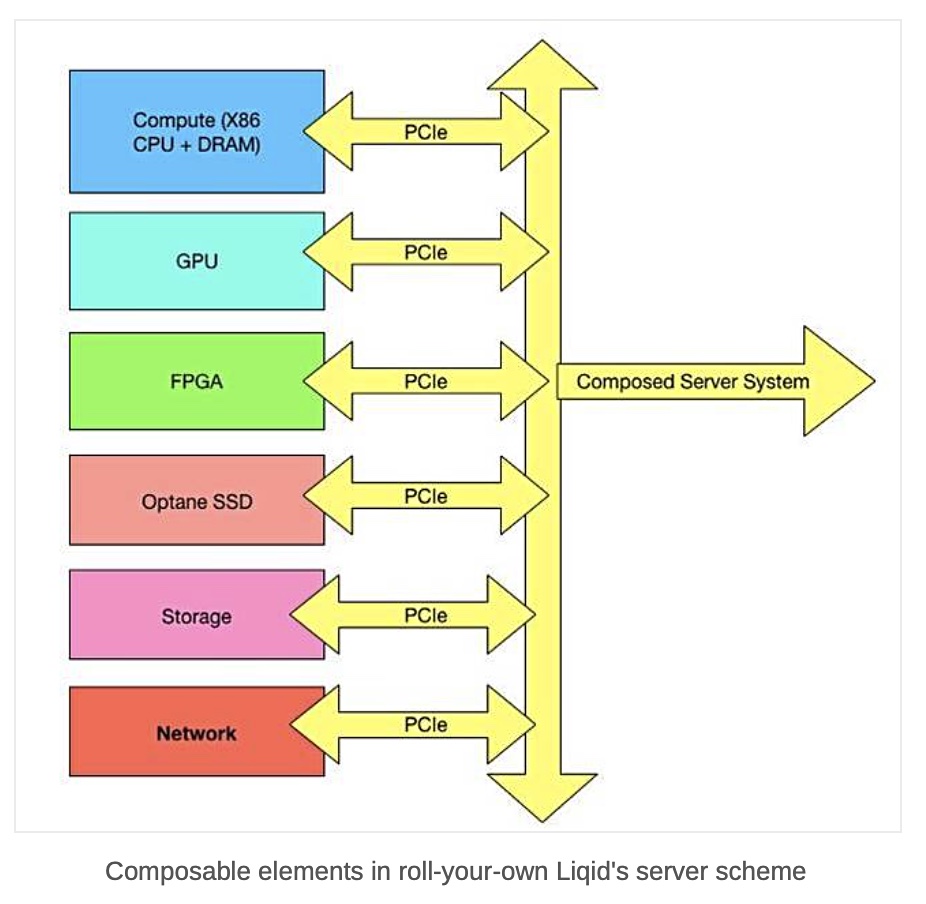
Jean and Kay are part of the High Performance Computing Modernisation Program (HPCMP) with a combined 15 petaflops of computing power. An HPCMP statement said: “Liqid’s composable solutions reduce the cost of deployment by optimising the ratio of GPUs to CPUs and dynamically changing such ratios as needed, significantly improving the total cost of ownership for high-density computing environments.
“The composable model enables GPUs to be incorporated into compute nodes on the fly to take maximum advantage of these powerful compute accelerators through software-defined technology.”
Panasas replaces Spectrum Scale
The University of Buffalo in New York state has bought 1.5PB of Panasas ActiveStor Ultra to provide high-bandwidth parallel access file storage for its Center for Computational Research. This provides computing resources to the 64 campuses within the State University of New York network and supports UB researchers and affiliated partners.
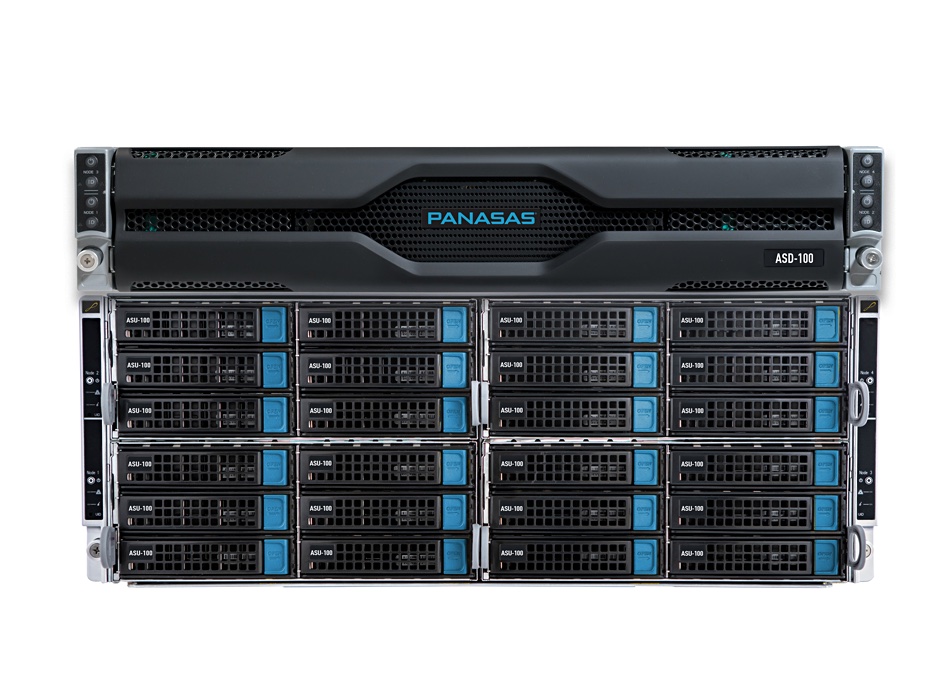
ActiveStor Ultra uses NVMe SSDs to store metadata, low-latency SSDs for small files, with large files stored on low-cost, high-bandwidth HDDs. PanFS software moves files dynamically between SSDs and disk drives to optimise performance and cost.
We understand the University of Buffalo is replacing an IBM Spectrum Scale (GPFS) parallel access file storage with this Panasas system. The university also had a 1.7PB EMC Isilon system in 2016.
Ceph and the Sausage Factory
Softiron has donated a Ceph-based 360TB HyperDrive storage array to the non-profit, open source Sausage Cloud Project in Scotland.
This is a resource for learning, research and development for open source cloud infrastructure software, (such as OpenStack and Kubernetes). Sausage Cloud runs out of an old military bunker and operates on a shoe-string budget. Developers are able to get cheap access to sausage-themed virtual machines with names like Bratwurst, Cumberland, Chipolata, and Hotdog.
Developers get access to an OpenStack platform, which resides on ancient HP BL460c G6 Blades, with mirrored 1TB disks, and a Cisco switch plus, of course, the HyperDrive system with its three HD11120 storage units.
Read up on the Softiron case study.
News briefs
Wells Fargo senior analyst Aaron Rakers provided subscribers with information from a Gartner report on storage software spending. Gartner expects this to decline 5 per cent Y/Y in 2020 to $16.8bn and to grow 3.3 per cent in 2021 to $17.4bn. Gartner expects the volume of stored data to triple through 2024 and the overall spending to increase at a 2019-2024 CAGR of 3.1 per cent to reach $20.6bn. Infrastructure software-defined storage is expected to grow the fastest among the sub segments at 8.3 per cent CAGR, while data replication is expected to decline at 6.8 per cent CAGR.
Quantum’s first fy21 quarter results slumped 31 per cent Y/Y to $73.3m and a net loss of $10.7m as Covid-19 crashed the economy. CEO Jamie Lerner said this in the earnings call: “While this was a challenging quarter, it’s clear that the worst is behind us. … We’re seeing our business improve. We are seeing steady and gradual recovery across enterprise, cloud, government, media and entertainment and other sectors… We are expecting a very strong quarter for our federal government business. We are seeing activity pick back up in movie, TV and sports production.”
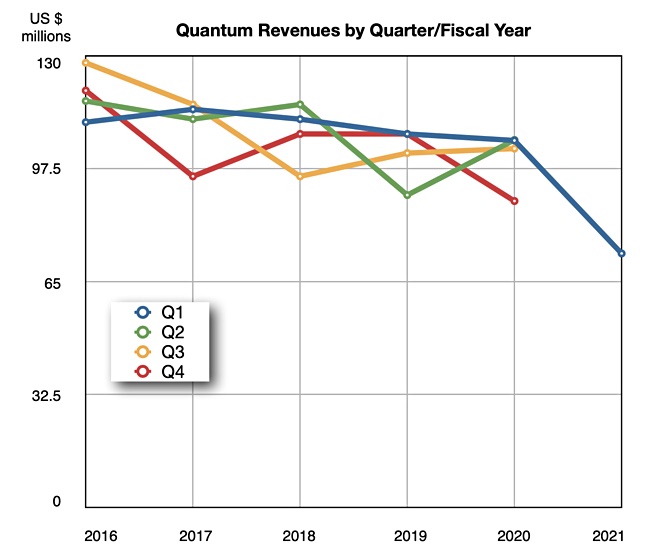
OVHcloud has bought Exten Technologies, the pioneer in NVMe-oF technologies that was once called Mangstor. Terms were undisclosed. OVHcloud recently bought object storage company OpenIO.
Object storage supplier Cloudian has announced a Kubernetes S3 operator. Cloud-native developers can use it to self-provision containers with Cloudian HyperStore S3-compatible object storage. Cloudian said its storage already serves as a scale-out backup target for open source Kubernetes applications and data through software tools such as VMware Velero and MayaData Kubera.
Data migrator Datadobi has announced DobiProtect enhancements to create a ‘golden copy’ of customer business-critical file and object data in its native format across heterogeneous systems. This golden copy enables companies to quickly restore business operations that rely on unstructured data when serious disruptions occur such as cyberattacks, ransomware, insider threats, storage platform specific bugs, natural disasters, etc.
HPE Proliant and Apollo servers and its Synergy composable systems are getting Kioxia single port CD6 SSDs with a PCIe Gen 4 interface.
Quantum‘s ActiveScale S3-compatible object store software has been verified as a Veeam Ready Object Solution. The company has also updated its deduplicating backup appliance DXi software to integrate with Veeam Backup & Replication 10.
ScaleMP said its MemoryONE product combines DRAM with cost-effective NVM SSD memory to transparently create a combined memory pool of multiple TBs of system memory. This can be used for in-memory databases, multi-tenant environments and other large-memory applications, residing on-premises or in AWS.
Storj said the FileZilla file transfer tool now works with Tardigrade peer-to-peer decentralised and encrypted cloud storage.
Toshiba has announced 3.5-inch format S300 and S300 Pro surveillance disk drives. The low-capacity S300 2TB and 4TB drives spin at 5,400rpm and can support 32 high-definition camera streams. They use shingled magnetic recording while the 3.5-inch S300 Pros, with up to 10TB capacity and 64-camera support, use conventional magnetic recording and write data faster when it overwrites existing tracks. The Toshiba S300 Pro series and the new S300 4TB model are available now, and the S300 2TB is expected later this year.

Virtana has integrated VirtualWisdom with Pure Storage’s FlashArray systems. The coupling provides real-time insights into the performance, consumption, right-sizing, and service levels of the IT workloads running with FlashArray storage.
Fast parallel file software supplier WekaIO has teamed with SAS specialist Destiny to produce a reference architecture capable of delivering 5X runtime and wall clock time improvements for SAS analytics long-running jobs, while also providing among the best storage economics. It’s available on-premises and in AWS.
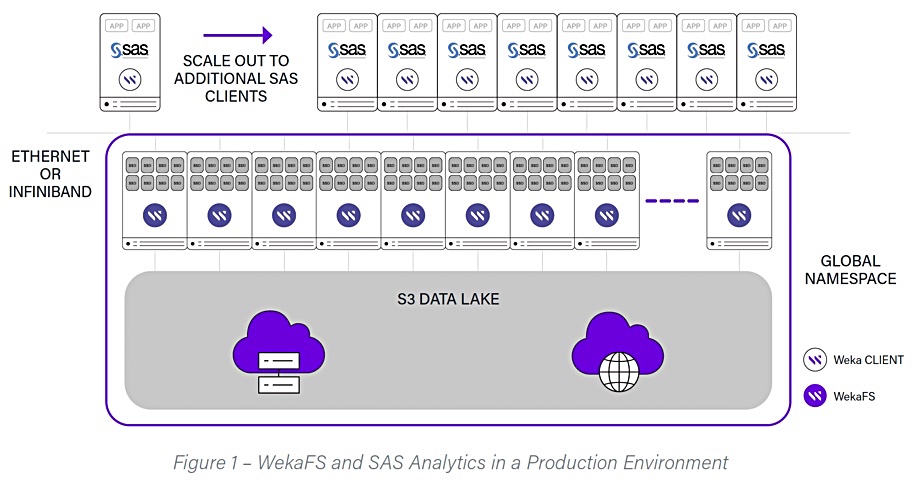
Verbatim has launched the Store’n’Go Mini SSD, a super-small (smaller than your palm) and lightweight SSD in a stylish black 3D surface design. Available in 512GB and 1TB capacities, the palm-sized Store’n’Go Mini SSD weighs just 35g and has a USB 3.2 Gen 1 interface for data transfer speeds of up to 5Gbps.









